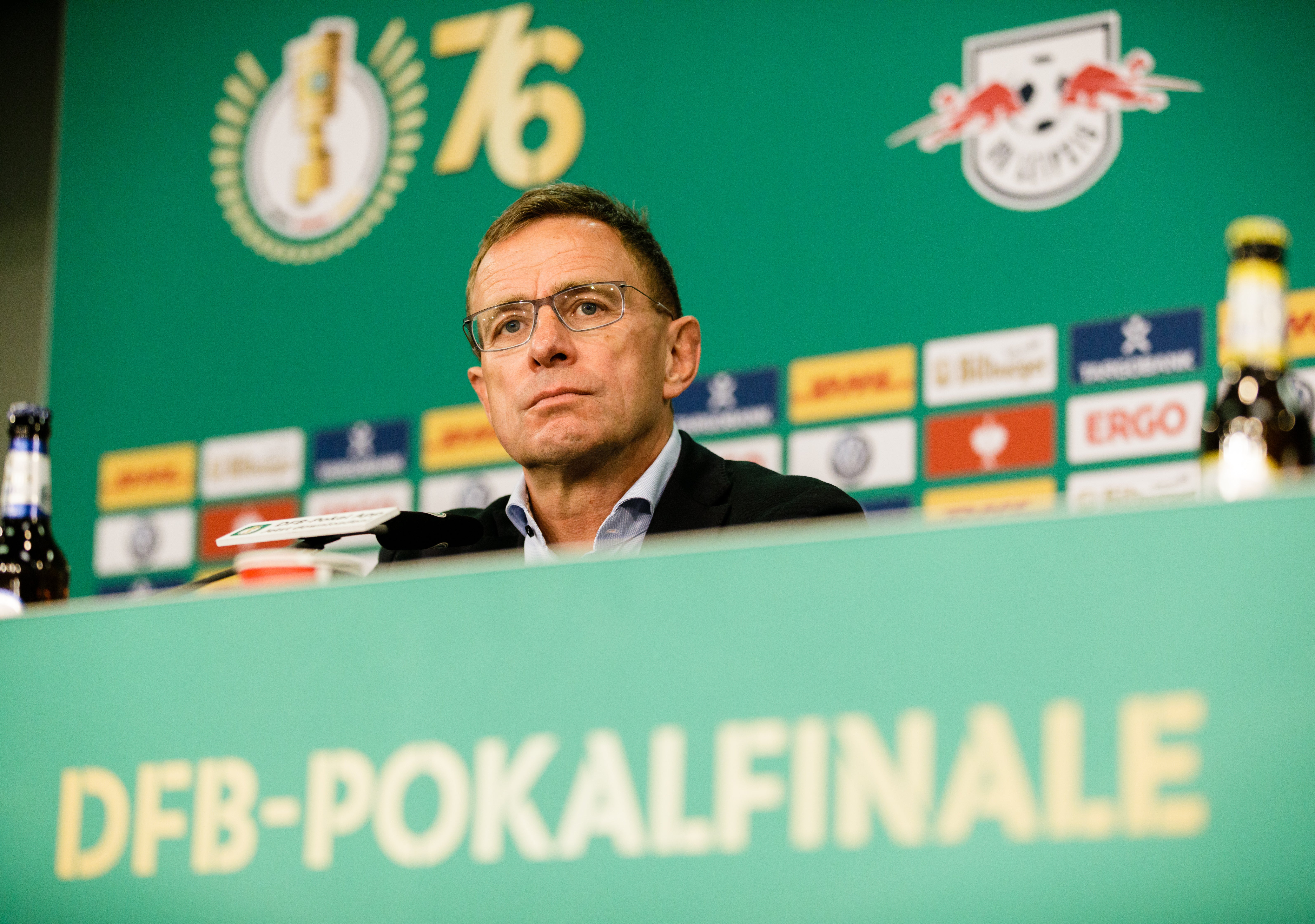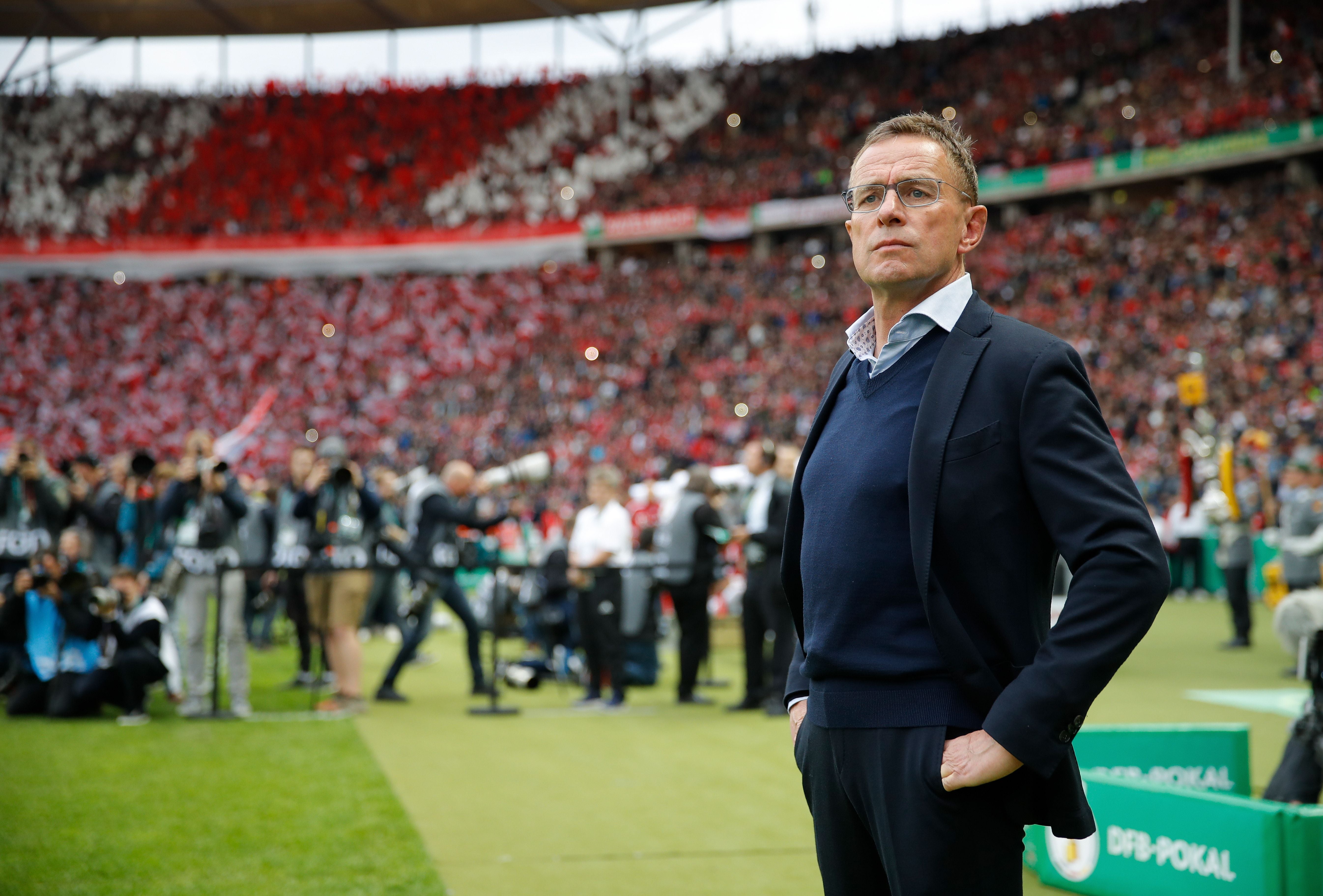Ralf Rangnick’s history, managerial record and profile of new Manchester United manager
Lokomotiv technical director has been appointed as interim boss at Old Trafford until the end of the season - so what are United getting?
Your support helps us to tell the story
From reproductive rights to climate change to Big Tech, The Independent is on the ground when the story is developing. Whether it's investigating the financials of Elon Musk's pro-Trump PAC or producing our latest documentary, 'The A Word', which shines a light on the American women fighting for reproductive rights, we know how important it is to parse out the facts from the messaging.
At such a critical moment in US history, we need reporters on the ground. Your donation allows us to keep sending journalists to speak to both sides of the story.
The Independent is trusted by Americans across the entire political spectrum. And unlike many other quality news outlets, we choose not to lock Americans out of our reporting and analysis with paywalls. We believe quality journalism should be available to everyone, paid for by those who can afford it.
Your support makes all the difference.Manchester United have hired Ralf Rangnick as the man to replace Ole Gunnar Solskjaer, at least in the short term.
The German joins initially as interim manager until the end of the season with a two-year consultancy deal to follow.
He arrives for his first job in England after years of being linked with roles but rarely coaching or working outside of Germany until recently - so who is he and what are the Old Trafford club getting with him?
What is his background?
A very modest playing career was ended early so he could start coaching - he was in the Stuttgart set-up before age 30 and worked his way through the regional leagues and German youth football as a manager, defining some of his earliest approaches which have become hallmarks of his later on.
In 1999 he took control at Stuttgart, his first job at a high-profile club, and has since been in the dugout with the likes of Schalke, Hoffenheim and RB Leipzig.
Seen as not just a progressive coach but an all-round lover of development of both individuals and teams, Rangnick has held not just head coach roles but also directorial positions whereby he can oversee and help implement a structure in playing style, recruitment and squad mentality.
In 2012 he was named Red Bull’s director of football, in large part responsible for the rise and work in the transfer market of both Leipzig and Salzburg during the same period. While he returned to coaching the first team more than once when managerial changes required it, his main role since then has been one of strategy and recruitment, also eventually incorporating RB Bragantino in Brazil and New York Red Bulls in United States.
Many current top coaches acknowledge the influence he has had, directly or indirectly, on their own development as managers.
In the past he has been linked with the likes of Liverpool, Tottenham and Chelsea in the Premier League alone.

Where was he working last?
Last year Rangnick, 63, was heavily rumoured to be heading to AC Milan to oversee a total rebuild of the club, but clashes with his role on the sporting director side of matters eventually saw that plan scuppered.
Instead, in July 2021, he joined Russian Premier League side Lokomotiv Moscow as head of sport and development. It was announced as a three-year contract, but that has now ended extremely prematurely as he heads to Old Trafford.
What is his style of play?
Since he’s set to be in the dugout, how he sets his teams up is of particular interest.
Rangnick is often referred to as being one of the earliest German coaches to emphasise the importance of counter-pressing high up the pitch - the gegenpressing approach - but far more than that, his team-building has been based on organisation of space in and out of possession, in constructing sides from players who fit what he wants in each role rather than with any reference to their status or cost and in redefining where players can be better than their rivals, on and off the pitch.
United’s players can expect to be required to play with much more intensity in possession, with a more energertic response to losing the ball and, crucially in comparison to what has been on show recently, with far more structure and clarity about how they move between the thirds and create attacking chances.
The football on show by the end of this season should look markedly different to that on offer so far.

Will United benefit long term?
Unquestionably. Aside from his impressive track record in coaching - notwithstanding a small honours list, given the clubs he worked at - he formed his own consultancy company shortly before joining Lokomotiv.
Reports state that he is due to remain at Old Trafford beyond an initial six-month stay in “another capacity” - this could conceivably be as an outside consultant with certain restrictions on which other club he can work for, even if it is not as an official club employee.
Rangnick’s entire ethos and reputation is one of constant improvement and building teams up far higher than when he took them over, and it’s near-certain he’d only agree to end one job and take on another if it came with the prospect of doing the same over time.
Join our commenting forum
Join thought-provoking conversations, follow other Independent readers and see their replies
Comments